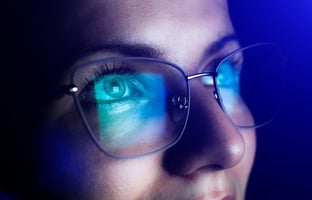It appears that the brains of pathological gamblers want money more than sex, Jean-Claude Dreher of...
"Dream Decoder" May Be Someday Be Possible
 |
Though the group is clear that being able to "read" dreams is not yet a reality, their results suggest it may eventually be possible: "Our findings demonstrate that specific visual experience during sleep is represented by brain activity patterns shared by stimulus perception, providing a means to uncover subjective contents of dreaming using objective neural measurement."
Tamaki, formerly with ATR Computational Neuroscience Laboratories in Kyoto, Japan, is now a research associate at Brown University in Providence, R.I.
Researchers have long studied dreams and are also conducting studies to shed light on multiple areas of sleep and its relationship to mental health. Read about their findings in Psychiatric News here and here.
(Image: wavebreakmedia/Shutterstock.com)





